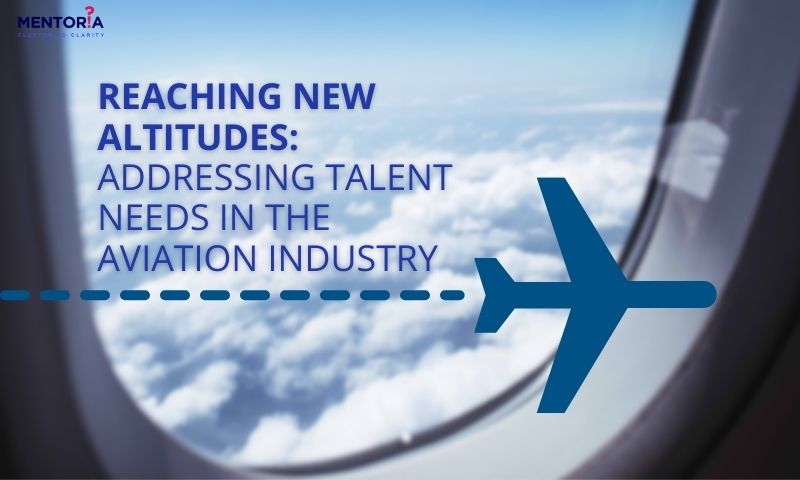Reaching New Altitudes: Addressing Talent Needs in the Aviation Industry

Strap in, because we’re about to take off into the thrilling skies of the aviation industry! Navigating the vast airspace of talent needs, the aviation sector is on a mission to reach new altitudes. From the cockpit to the ground crew, every role is a crucial piece of this high-flying puzzle. In this blog, we’ll be your air traffic control, guiding you through insights that propel the aviation industry to soar to new heights in meeting its talent needs! Let’s dive into the key areas that will set you apart in the aviation job market.
What Are Some Talents Demanded In The Aviation Industry Right Now?
Coders: The Language Of Aviation’s Future
Coding has transcended its role as a niche skill to become the universal language steering the industry into the future. No longer confined to software engineers alone, coding literacy is now a pivotal asset for professionals navigating the aviation sector. The demand for individuals adept at coding arises from its transformative potential in aircraft systems, avionics, and ground operations. Cracking the code isn’t just for tech gurus. It’s like having a backstage pass to the coolest tech tricks in the aviation world. Think of it as your ticket to making flight routes super fuel-efficient and ramping up communication systems – all thanks to the magic of coding!
Here’s the lowdown: getting into coding isn’t just about typing lines; it’s about becoming a pro in the aviation game. You get to peek under the hood of the tech, turning you into the go-to person for all things digital.
Data Analysts: Navigating Trends And Efficiency
In the aviation sector, data analysis directs professionals toward efficient and informed decision-making. As the industry struggles with a staggering volume of data – from flight patterns to passenger behaviour – the demand for professionals proficient in data analysis intensifies. This skill set is no longer relegated to spreadsheets; it’s now the backbone of processes aimed at enhancing safety measures, improving fuel efficiency, and streamlining the passenger experience.
In aviation, looking at data helps predict when planes might need fixing. Imagine knowing about issues before they become big problems – that’s what data analysis does! Pros who know their way around data turn boring numbers into useful info. They’re like the MVPs because airlines really count on them to keep everything running smoothly. In an industry where using data is the cool thing to do, these folks are the go-to experts for making sure planes are good to go!
Robotics: Transforming Aviation Operations
The hum of robotics in aviation is not a distant future soundscape but a present reality reshaping operational paradigms. From automated baggage handling systems to robotic maintenance procedures, the integration of robotics in aviation operations is redefining efficiency and safety. The demand for professionals well-versed in robotics stems from the industry’s pursuit of more streamlined, automated, and reliable processes.
In aviation, robots aren’t here to steal our jobs; they’re more like our buddies. People who know their way around robots help set them up and keep them running smoothly. It’s all about teamwork! These pros make sure robots work seamlessly with us, combining our human instincts with the precision of robots. This tag team makes things in aviation run better – faster, cheaper, and ready to tackle whatever the industry throws our way.
Software Developers: Crafting The Future Of Aviation
In the aviation sector, software development emerges as the brushstroke that paints the future of the industry. Crafting applications that optimise air traffic control, developing solutions for real-time monitoring – software developers play a pivotal role in shaping aviation’s trajectory. The demand for individuals skilled in software development is not confined to tech hubs; it reverberates across the aviation landscape, from large carriers to innovative startups.
Software developers in aviation contribute to the creation of tools that enhance operational efficiency, improve safety measures, and elevate the overall passenger experience. Their role extends beyond coding; it involves crafting solutions that address the unique challenges posed by the aviation sector. Proficiency in software development empowers professionals to innovate and adapt, positioning them as architects of the industry’s digital transformation.
Aerospace Engineers: Designing The Future Of Flight
Okay, let’s break it down! The aviation world is on the lookout for awesome aerospace engineers. These are the folks who design, build, and test aeroplanes and spacecraft – the real flight wizards!
Their job is all about making flying better. From figuring out how planes move in the air to making sure the engines work like a charm, aerospace engineers are the heroes behind the scenes. The aviation industry needs them to come up with cool ideas that make planes use less fuel, be kinder to the environment, and basically push the limits of what we can do up in the skies. They’re like the masterminds of making flying not just cool but super efficient!
Cybersecurity Professionals: Safeguarding The Digital Skies
In an era dominated by digital connectivity, the aviation sector is increasingly reliant on technology, making cybersecurity a critical talent demand. Professionals in this field play a pivotal role in safeguarding aviation systems, data, and communication networks from cyber threats. With the rise of connected aircraft and the integration of digital solutions, cybersecurity experts ensure that aviation operations remain secure, free from unauthorised access or disruptions. The demand for cybersecurity talent in the aviation sector underscores the industry’s commitment to maintaining the highest standards of safety and resilience in the face of evolving cyber threats.
Elevate Your Aviation Career with Mentoria
In the ever-evolving aviation sector, the demand for talent with diverse skill sets has never been higher. Aspiring professionals must equip themselves with coding prowess, data analysis finesse, robotics proficiency, and software development skills. These capabilities don’t just make you a contender in the job market; they position you as a catalyst for the industry’s future. So, spread your wings, embrace the evolving landscape, and take flight into a career that promises not just a job but a journey of innovation and growth.
Ready to navigate the dynamic world of aviation careers? Mentoria, your career companion, provides tailored guidance to help you soar in the industry. Mentoria’s career guidance programme enables you to choose your perfect fit from 3 streams, 850+ courses, and 12,000+ careers, and discover what will bring out the best in you.









